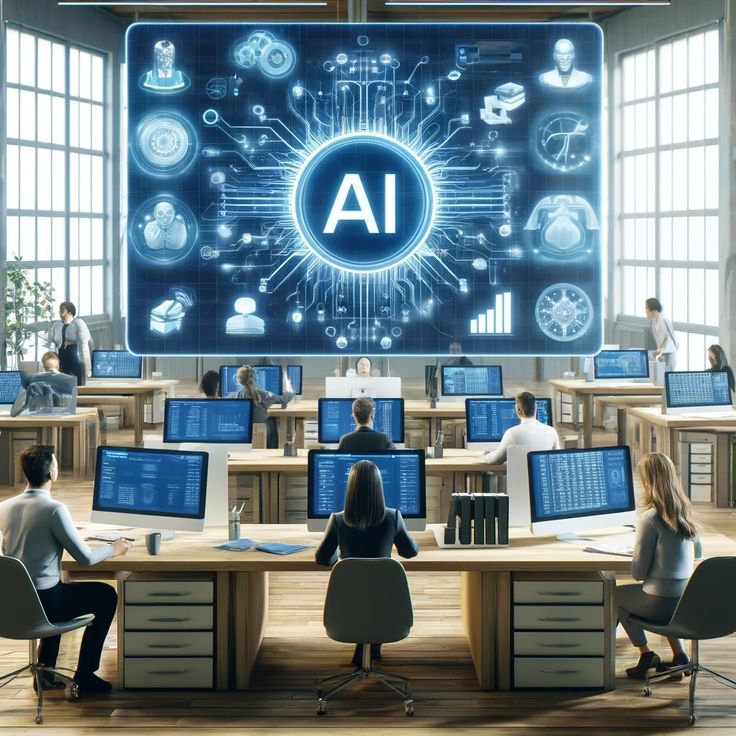“OpenAI Enters India: A New Chapter in the Country’s AI Story”
The OpenAI India office was announced on a humid August morning in New Delhi, as the city stirred to life with its usual chaos of traffic, chai stalls, and hurried office-goers. On August 22, 2025, OpenAI confirmed its plans to establish a physical presence in the capital, stating it had been registered as a legal entity in India and had begun local hiring. OpenAI, the company that introduced the world to ChatGPT, had chosen Delhi to open its first office in India. It wasn’t just another corporate expansion. For many, it felt like recognition that India’s booming AI community, its restless developers, and its ambitious national mission were impossible to ignore. OpenAI’s decision to open its first office in India is more than a business move; it is a statement about where the future of artificial intelligence will be shaped. For years, India has been spoken of as a potential leader in digital transformation. Now, with this step, that possibility looks closer to becoming reality. India is already OpenAI’s second-largest market, a fact that explains much of the timing. But numbers only tell part of the story. The real reason is momentum. Students, startups, and small businesses across the country are not waiting for permission to use AI. They are experimenting, adapting, and applying it to solve problems that matter in everyday life. In a country where leapfrogging technology has often replaced slow, incremental progress, the appetite for AI is not just strong; it is urgent. By establishing a physical presence in New Delhi, OpenAI is signaling that it intends to engage directly with this energy. It is also a gesture of legitimacy, one that suggests it does not want to be a distant provider but a participant in India’s AI journey. The launch of OpenAI Academy earlier this year, providing AI education in English and Hindi, and the grants awarded to nonprofits through its AI for Impact program already hinted at this direction. The new office cements it.

For months, whispers had circled in startup cafés and policy corridors: would OpenAI ever come to India? And if so, why now? The answer lay in the numbers. India had surged to become OpenAI’s second-largest market after the U.S. Every week, more students were using ChatGPT to learn, startups were prototyping tools with its API, and small businesses were experimenting with ways to grow. In India, AI wasn’t a luxury; it was a shortcut to opportunity. So when OpenAI’s representatives filed papers for a local entity, it wasn’t just bureaucracy—it was a signal. Delhi would be the anchor, but the story was much bigger: a partnership with a country eager to leap into the AI century. By the time the office was announced, OpenAI had already dipped its toes into India. The OpenAI Academy had launched in June, offering courses in English and Hindi, with promises of more regional languages to come. Nonprofits had begun receiving grants to use AI for healthcare, agriculture, and education. And now, there was a physical presence an office, a team, and the promise of listening more closely to the Indian developer community. Events were on the horizon too: an education summit this month, a developer day later this year. For policymakers, the move was validation of the IndiaAI Mission, the government’s effort to democratize artificial intelligence. Union IT Minister Ashwini Vaishnaw welcomed OpenAI’s step as fuel for inclusive growth, describing it as a turning point for India’s place in the global AI ecosystem. Of course, every arrival comes with baggage. Questions about affordability linger even with the ChatGPT Go plan at ₹399 a month. Legal challenges around content and data still loom. But the difference is this: OpenAI is now here, not as a distant actor, but as a neighbor at the table. And that changes the story. In the grand arc of India’s technology journey, from outsourcing hubs in the 1990s to a startup wave in the 2010s, the arrival of OpenAI in Delhi feels like the opening of a new chapter. Not one where India is a spectator or a customer, but one where it helps write the rules of the game. Somewhere in Delhi, as coders and policy thinkers prepare to engage with this new presence, the unspoken question hangs in the air: will India simply adopt the future of AI or will it help shape it? For OpenAI, the bet is clear. For India, the story is just beginning. In the broader arc of India’s technology story, this moment feels like a turning point. The 1990s positioned India as the world’s back office. The 2010s saw the rise of a startup culture with global ambition. The 2020s may well be remembered as the decade when India helped shape the rules of artificial intelligence. OpenAI’s arrival is one piece of that story, but it is a telling one. It signals that the age of AI will not be written in one geography or one voice alone. India will have its say, and the OpenAI India office is betting that it must be part of that conversation.














Post Comment